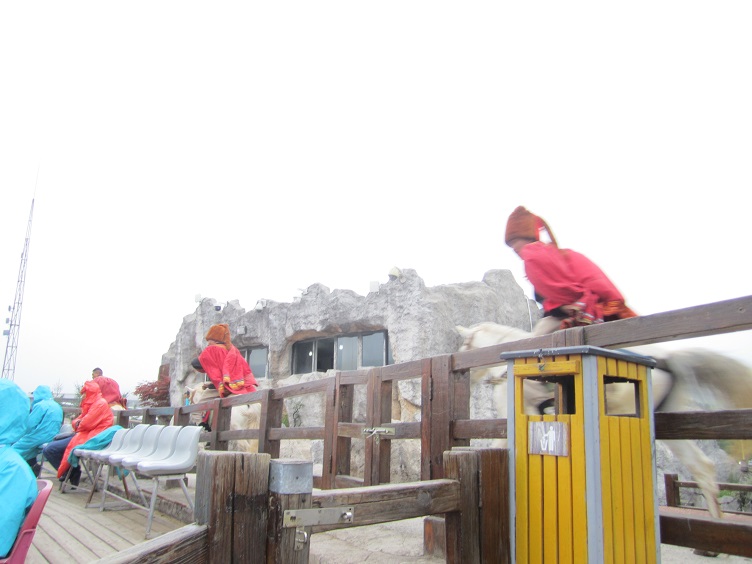When I caught the name, “Penis Monologues” out of the corner of my eye, I felt a moment of trepidation that some men’s rights group was mounting a show as an aggressive counter to the Vagina Monologues. However, it turned out that the show is actually an attempt to combat the culture of “dominant male temperament” in China, a term which is somewhat analogous to the English term, “toxic masculinity.” The show was created by a noted sexologist in China, Fang Gang. (It should be noted that the title in Chinese doesn’t use the word “penis.” The articles doesn’t indicate what the actual title is.)
It was interesting to read how other cultures are experiencing the global conversations about gender roles. (China has had its own spate of #MeToo stories.) Many male participants in Fang’s project really had to overcome their reticence. Given that a number had never performed before, and unlike the generally empowering tone of the Vagina Monologues, the show dealt with some pretty negative subject matter, their reluctance is understandable.
But the play’s subject matter hasn’t made it easy for Tao to find willing actors. Most men she approached declined after reading monologue titles like “Penis Size,” “Domestic Abuser,” and “Erectile Dysfunction.” “They are afraid of being mocked or judged by the public,” she tells Sixth Tone.
When 42-year-old business owner Yu Lei read the play for the first time, he was shocked that it so boldly addressed taboo subjects. But after attending one of Fang’s sex-ed public lectures and seeing members of the audience calmly taking notes, he decided to join the troupe, despite never having acted before.
Tao assigned Yu to the play’s first monologue, “Date Rape,” which tells the story of a male college student forcing his girlfriend to have sex with him in a hotel room. Yu was so nervous about performing that he told his wife he was taking part in a charity event organized by White Ribbon, the advocacy organization launched by Fang in 2013 to end violence perpetrated by men against women. But he needn’t have worried: His performance wins thunderous applause from the 90 or so people in the audience, though Yu later confesses to Sixth Tone that he slightly regrets doing it. “I’m afraid people might think it was my own story,” he says.
According to article, in addition to challenging audiences to question the societal norms that men need to be dominant in their careers and relationships with women, the show also addresses some pretty ingrained binary definitions of gender.
That pain is familiar to Ye Chuyang, a queer actor portraying their own experiences in the monologue “Gender Queer.” “I don’t agree with binary gender divisions, because it limits people’s possibilities,” Ye tells Sixth Tone. “Most people think men are supposed to be macho, decisive, and strong. They don’t appreciate feminine or delicate men. Though my parents appreciate the sensitive and gentle side of me, they prefer me to be strong and tough just like other boys.”
Ye thinks the play is a chance to both educate people about sexual diversity and help more men understand the experiences of women. “If men could break the rules and speak out, women would feel encouraged and less lonely in this battle,” he says.
In addition to illustrating the power of arts and culture to facilitate conversations on difficult topics, for me this story represents the degree to which the world is becoming metaphorically smaller. We may be frustrated by lack of progress in our own local spheres, but the motion of a movement can create ripples that begins to bring resonant changes in other parts of the world.











Thanks for what you are doing to bring cultural change to the arts. It is so important to represent everyone.…